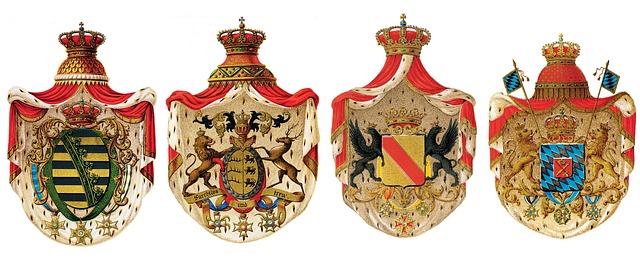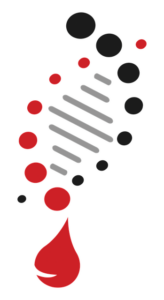Translation Services: Enhance UK Technical Guidelines’ Accuracy
In the UK market, accuracy in technical guidelines and standards is crucial for safety, product specifications, and compliance. Translation services are essential for global businesses to ensure accessible and clear documentation across diverse langu…….

In the UK market, accuracy in technical guidelines and standards is crucial for safety, product specifications, and compliance. Translation services are essential for global businesses to ensure accessible and clear documentation across diverse languages, navigating cultural nuances and regulations. Professional translators combine linguistic skill with technical knowledge to maintain document integrity, preventing errors and legal complications. Incorporating translation early in the development process, with peer review and back-translation, enhances quality. Rigorous evaluation, including comparisons and stakeholder feedback, confirms translated guidelines accurately convey technical information while adhering to regulations, ensuring their reliability for global audiences.
Enhancing the accuracy of UK technical guidelines is vital for ensuring clear communication and consistent application across industries. With an increasing global market, translation services play a pivotal role in this process. This article explores the significance of accurate translations, offering insights into how professional translation can improve technical standards. We’ll guide you through best practices for incorporating translation into guideline development and provide methods to measure success, ensuring your UK technical guidelines are not just words on paper but precise, actionable resources.
- Understanding the Importance of Accuracy in UK Technical Guidelines
- The Role of Translation Services in Ensuring Clarity and Consistency
- Best Practices for Incorporating Translation into Your Guideline Development Process
- Measuring Success: Evaluating the Enhanced Accuracy of Translated Technical Standards
Understanding the Importance of Accuracy in UK Technical Guidelines

In the realm of technical guidelines and standards, accuracy holds paramount importance, especially within the context of the UK market. These guidelines serve as a crucial reference for businesses, professionals, and consumers alike, dictating safety protocols, product specifications, and compliance requirements. Ensuring their precision is not merely a matter of adhering to legal obligations but also fosters trust and confidence among all stakeholders involved in the production, distribution, and usage of goods and services.
Translation services play a pivotal role in enhancing the accuracy of UK Technical Guidelines, particularly for businesses operating within a global context. Accurate translations ensure that these guidelines are accessible and comprehensible across diverse linguistic landscapes, thereby facilitating compliance and reducing the risk of errors or misinterpretations. By leveraging professional translation services, organizations can seamlessly navigate cultural nuances, technical jargon, and regulatory requirements specific to the UK market, ultimately bolstering the integrity and effectiveness of their technical documentation.
The Role of Translation Services in Ensuring Clarity and Consistency

Translation services play a vital role in enhancing the accuracy of UK technical guidelines and standards. With language being a complex and dynamic aspect of communication, professional translators ensure that documents are accurately translated, maintaining clarity and consistency across all languages. They possess not just linguistic proficiency but also a deep understanding of technical terminology, ensuring that specialized knowledge is conveyed effectively.
Accurate translations are essential for guidelines and standards as they often serve as references for industries and professionals. Mistranslations can lead to misunderstandings, errors, and even legal issues. Translation services employ rigorous quality assurance processes to guarantee that the translated content not only conveys the same meaning but also adheres to the original intent and context. This is particularly crucial in technical documents where precision and consistency are paramount.
Best Practices for Incorporating Translation into Your Guideline Development Process

When developing UK technical guidelines, incorporating translation best practices is paramount to ensuring accuracy and accessibility across diverse linguistic landscapes. Engaging professional translation services specializing in your industry ensures that terminology and complex concepts are rendered precisely into all target languages. This meticulous process involves more than word-for-word translations; it demands a deep understanding of the technical domain to convey information clearly and contextually.
Integrating translation early in the guideline development lifecycle is crucial. It allows for parallel drafting, enabling experts to focus on content while translators handle linguistic precision. Quality assurance measures, such as peer review and back-translation, should be implemented to catch potential errors or misinterpretations. By adopting these best practices, you elevate the quality of your UK technical guidelines, making them reliable resources for a global audience.
Measuring Success: Evaluating the Enhanced Accuracy of Translated Technical Standards

When enhancing the accuracy of UK technical guidelines through translation services, evaluating the success of this process is paramount. Measuring success goes beyond simply ensuring words are correctly translated; it involves validating that the translated standards maintain their original intent and functionality. This involves rigorous testing to confirm that the translated documents accurately convey technical information and comply with regulatory requirements.
Effective evaluation methodologies can include comparing the translated guidelines against the source material, conducting usability tests with industry experts, and gathering feedback from stakeholders involved in the technical field. By employing these strategies, you can ascertain the enhanced accuracy of translation services for UK Technical Guidelines and Standards, ensuring they remain reliable resources for all users.
By incorporating high-quality translation services into the development process, you can significantly enhance the accuracy of your UK technical guidelines. This ensures that your standards are clear, consistent, and accessible to a broader audience, fostering better compliance and efficiency across industries. Translation plays a pivotal role in navigating the complexities of diverse linguistic landscapes, making your guidelines a reliable resource for all.






